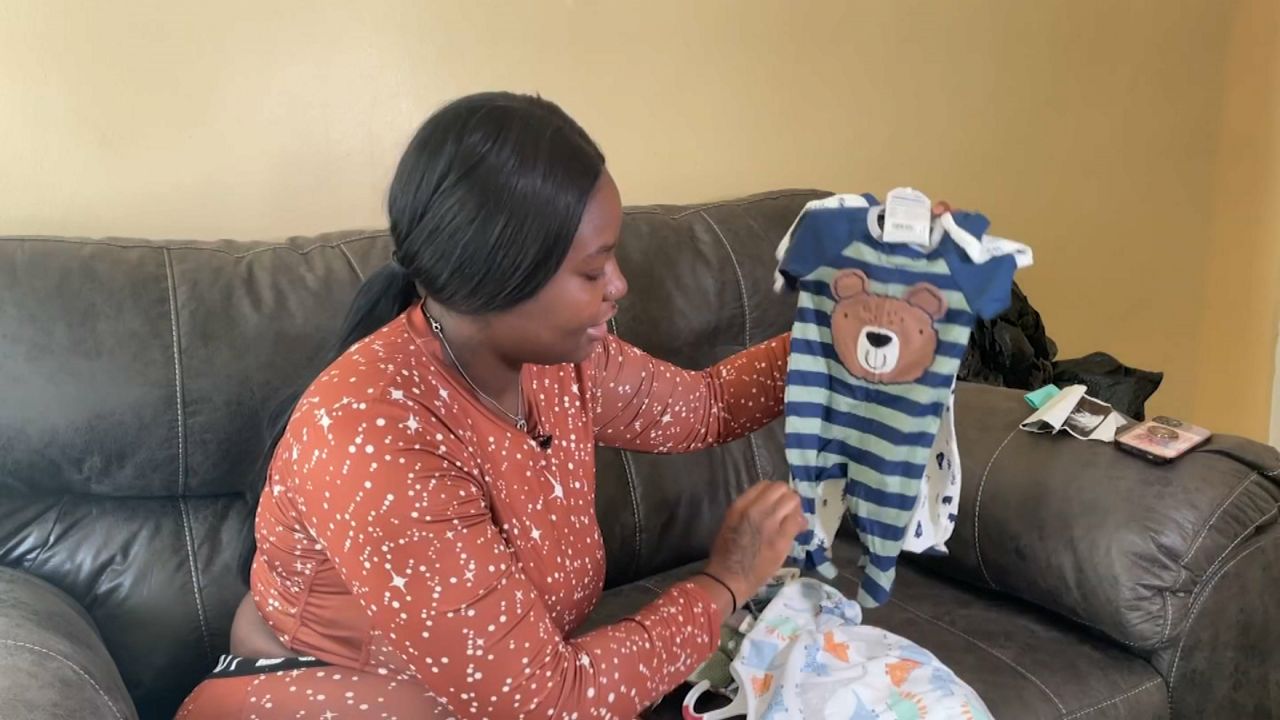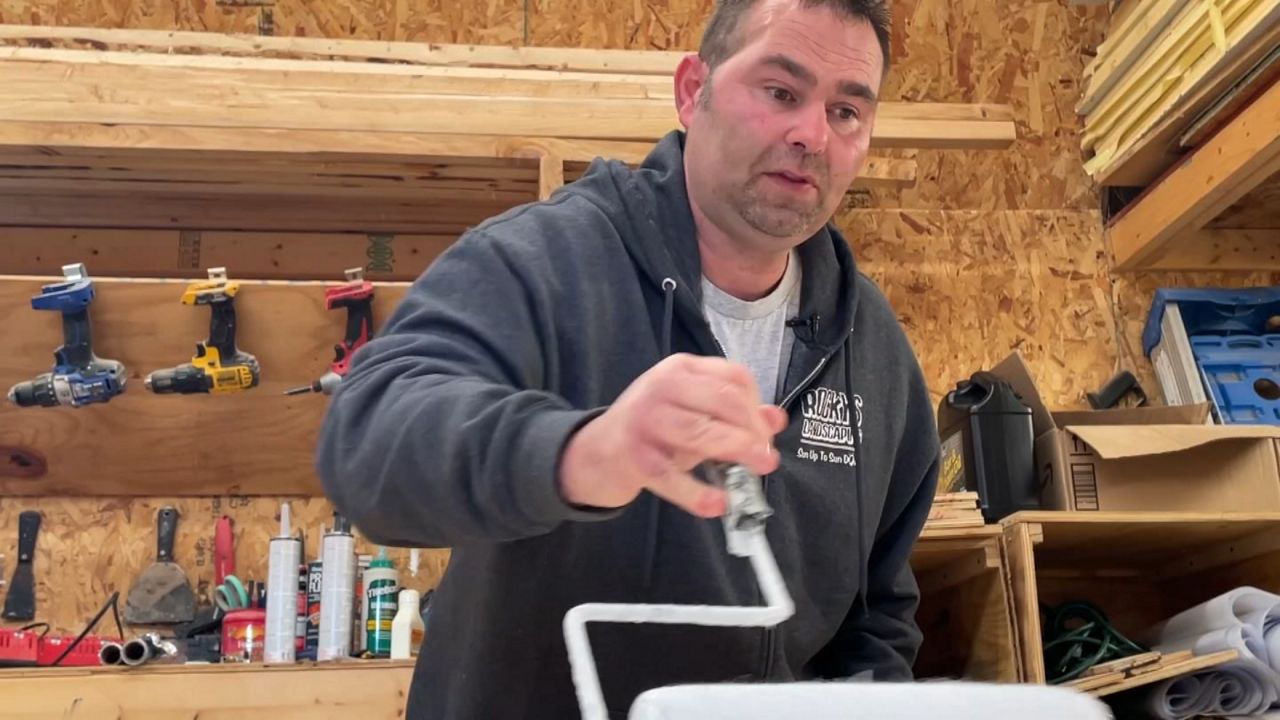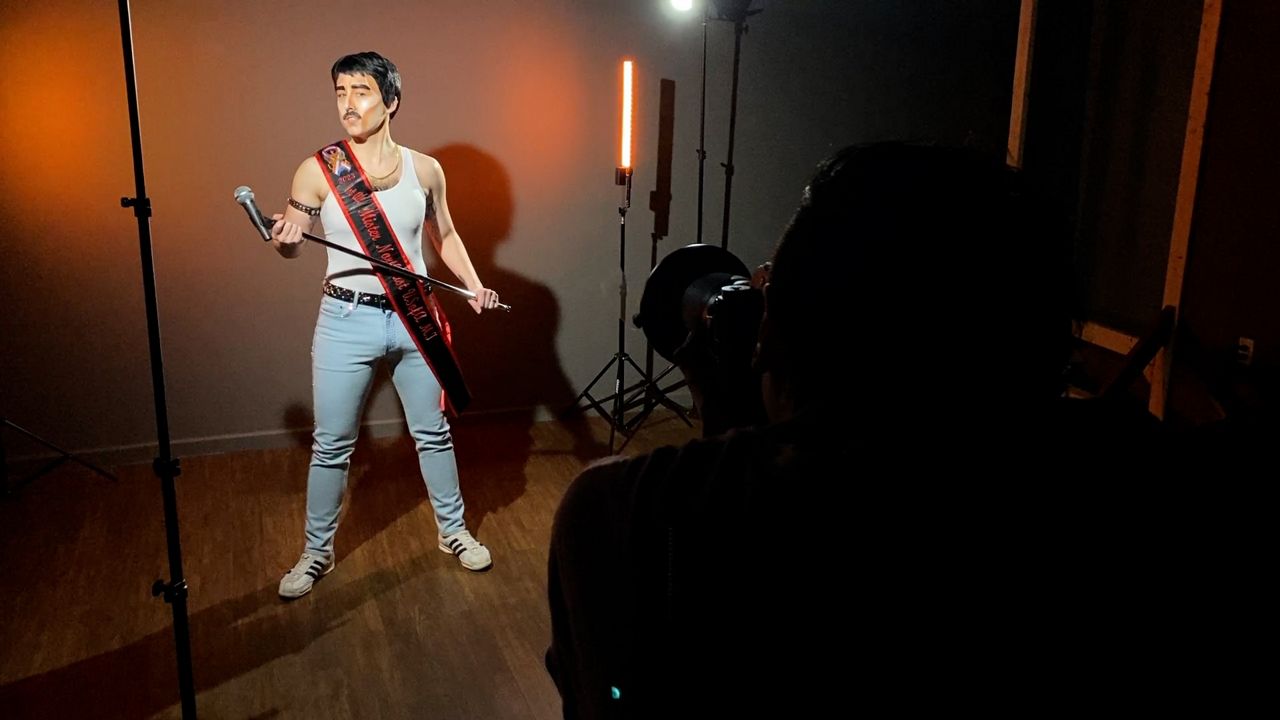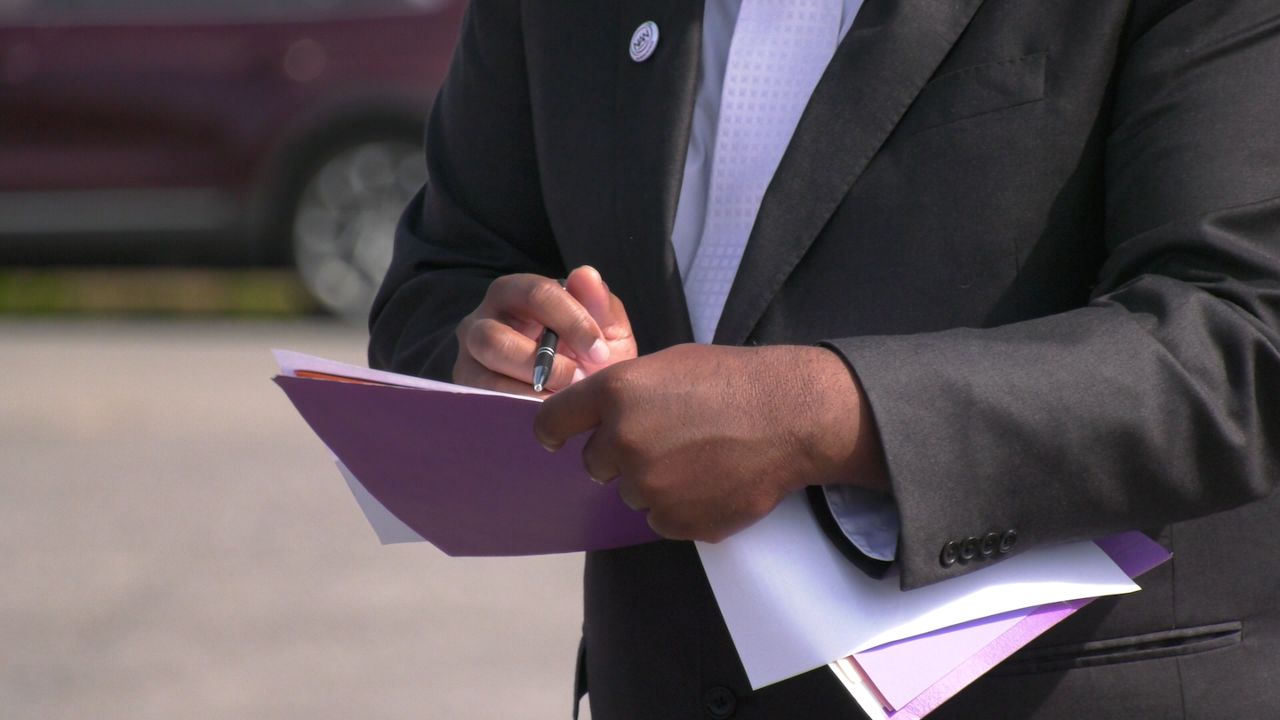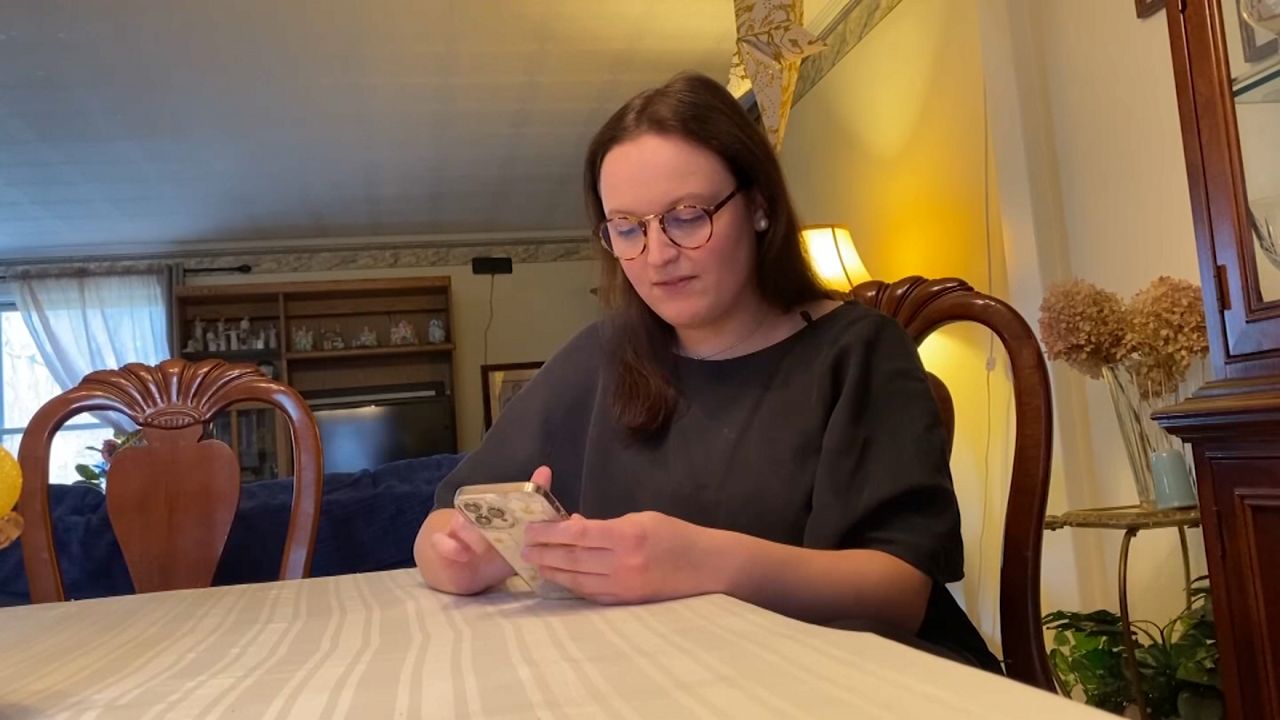A Rochester woman is about to welcome her first child and she's excited for an opportunity to start her family with a leg up.
“Now that I have my own little person, all I see now as I look forward is me and him,” said Myranique Dean, a single mother who’s halfway through her pregnancy with her first child. “You know, there’s no more just me there’s no me and them or anybody else, but me and him. So I’m very excited about, you know, finding us our own space.”
She’s excited for her family to get one member bigger, but it’s been tough to prepare for alone.
“I told the father, um, he’s kind of, you know, scared, indecisive about it, and I’m gonna let him have that," said Dean. "He, you know, when he ready, he’ll be here. Other than that, I really don’t need anything.”
This is only one circumstance that leaves her with a lot to do and not a lot of help to do it. It can be overwhelming for new mothers, like Dean.
“I’m not going to lie, before I found out about it, I was kind of in the middle of 'what am I going to do?' Like, 'what can I do? What will I do?' I didn’t know. Like I had no clue. Like it’s kind of hard when you’re kind of just starting to get to the position you want to be in and then something moves you a step back and now you got to start over,” Dean explained.
“Financially I’ve been trying to find a work and trying to find a job, but it’s hard I was working, but I was working at a job that wasn’t willing to give me reasonable accommodations for my pregnancy.”
It was a lot to think about while already busy planning for a new child and looking for work.
“It made me really emotional. It made me sad. It made my feelings hurt. It made me cry. It made me feel like I didn’t have a voice,” Dean said.
She’s only one voice, a single mother trying to make ends meet.
According to a 2018 Pew Research Center Analysis of U.S. Census Bureau data, roughly 24 million, or one-third, of American children under the age of 18 are living with an unmarried parent. Of those parents, 81% are single moms, like Dean. That’s why she applied for the Bridge Project, which is a New York state program focused on fighting child poverty.
“The Bridge Project aims to solve child poverty in the United States and we are using a simple, flexible, empowering solution which is unconditional cash,” said Stephanie Silkowski, chief of staff for the Bridge Project. “We know from decades of research that the first 1,000 days of a child’s life is really that critical developmental period, but we do so little in the United States to invest in that period. So we care about stabilizing families with unconditional cash.”
The Monarch Foundation is one of the primary funders for the program. The Bridge Project gives new parents $750 a month to help end child poverty before it gets worse. In order to apply, candidates must be 18 years old, be 23 weeks pregnant or less, have an annual household income of $40,000 or less, live in an eligible zip code, and not be enrolled in another guaranteed basic income program. The monthly allowance was created based on self-sufficiency standards and the cost of living in the Rochester area. However, the program originated in New York City where participants received up to $1,000 a month.
“The bridge project definitely gives me the funding to be able to help myself and not have to just, you know, keep asking or needing or borrowing, you know, so I’m excited for that,” said Dean, adding that a little help can go a long way for her and her baby boy. “I really want to use the money as an investment for my child. You know, I want him to be able ... I’m going to put him up a savings account with the money, and also use it to pay rent while I’m looking for work so that he can have a place to sleep at nice and also have some money if anything were to ever happen to me.”
This funding is the boost of support to help her gain independence for her growing family.
“I’m more, more excited. I’ve always been a house-over-car type girl. I will walk to the end of the earth. I have to because I have legs. But as far as sleeping at night, I would love to sleep somewhere comfortably in my comfortable space. So the Bridge Project will really help me find my own space,” Dean explained. “I was kind of, you know, I really thought that I was, you know, going downhill. But thank God for the Bridge Project.”





